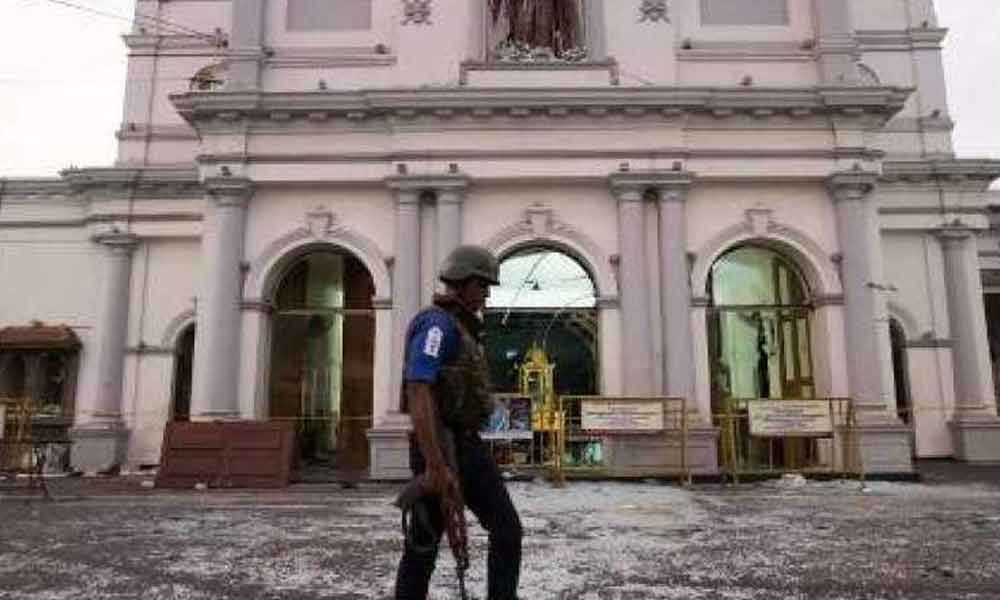Live
- Three persons admitted to hospital for diarrhea treatment
- First Star Outside Milky Way Captured: WOH G64 is 2,000 Times Larger Than the Sun
- Sikkim govt to constitute state Niti Ayog: CM Tamang
- CBI books Rajasthan narcotics inspector for Rs 3 lakh bribe
- Rajasthan bypolls: A tough contest between BJP and Congress
- Albania joins SEPA, paving way for EU integration
- Japanese government approves 250-billion USD economic package to ease price pain
- Six pharma companies to set up their units in Telangana
- The Unstable Events of a 17-Wicket Day in Perth: India vs Australia
- Dutch FM's Israel trip cancelled after Netanyahu's arrest warrant
Just In

The country earned about USD 4.4 billion in 2018 from the tourism sector.
COLOMBO: The Sri Lankan government has announced a one-year debt moratorium and subsidised working capital for the tourism sector as a slew measure to help revive the tourism industry hit hard by the Easter Sunday terror attacks.
The relief package comes as the official tourism arrival figures released on Tuesday, the first monthly report since the terror attacks, showed that Sri Lanka's tourist arrivals declined 7.5 per cent in April 2019 compared to the same period last year.
The Sri Lanka Tourism Development Authority said April recorded 166,975 foreign tourists in the country compared to 180,429 in April 2018, a 7.5 per cent dip in the arrival of tourists from abroad.
State Minister for Finance Eran Wickremeratne said the debt moratorium will be given by the Central Bank of Sri Lanka to tourism sector institutions and individuals, on a case-by-case basis.
The moratorium period will be until March 31, 2020, for both capital and interest payments granted to the tourism sector as of April 18, 2019, the minister said.
The interest subsidy is borne by the government on outstanding credit facilities, both capital and interest, he said.
The working capital debt and interest will be treated as separate loans to be repaid from July 2020. Working capital loans will be based on revenue of hotels. Up to 75 per cent of the interest will be subsidised, the state minister said. The Value Added Tax on hotels will also be reduced to 5 per cent from 15 per cent, Wickremeratne said.
Duty-free importation will be allowed for security equipment such as handheld metal detectors, walk-through metal detectors, baggage x-ray inspection equipment and vehicle scanners.
The bombings, which targeted three Christian churches and three Colombo hotels, killed over 250 people, including 44 foreigners, and injured over 500, including 37 foreigners.
Tourism industry officials said there have been 70 per cent cancellations of prior bookings after the attacks.
The US, China, the UK, India and Australia were among the countries which issued travel warnings on Sri Lanka following the blasts carried out by local Islamist extremist group National Thawheed Jammath (NTJ).
Sri Lankan President Maithripala Sirisena Tuesday appealed to the international community to lift travel the warnings issued after the terror attacks.
Tourism accounts for about five per cent of Sri Lanka's economy, with India, Britain and China being the main markets.
The country earned about USD 4.4 billion in 2018 from the tourism sector.
Around 450,000 Indian tourists visited Sri Lanka last year and the island nation was expecting the total Indian tourist arrivals to cross one million in 2019.
Sri Lanka Tourism Development Authority Chairman Kishu Gomes has said that tourist arrivals are expected to fall 60 percent in May.
Sri Lanka is expected to lose 1.5 billion US dollars in revenue from tourism in 2019.

© 2024 Hyderabad Media House Limited/The Hans India. All rights reserved. Powered by hocalwire.com







